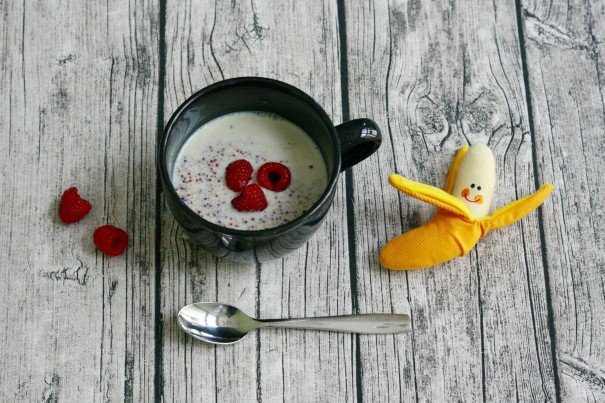
The Interspecies Delights in a Bowl of Warm Porridge

The Interspecies Delights in a Bowl of Warm Porridge
Api in California
I rushed through my morning shower, whisking a severe bar of pink soap over my skin, then rinsing the suds-less film with cold water. My towel was soggy even before I wrapped it around my body, because towels never completely dry in the Bolivian jungle. I didn’t have time to bother with a hairbrush.
The monkeys were waiting, and they were hungry.
This was the Parque Machia animal sanctuary in Villa Tunari, Bolivia, home to hundreds of primates, big cats, bears, and birds, most of them confiscated from the wildlife black market and previously abused. I worked with the sometimes fierce, always insatiable capuchin monkeys.
Near the park entrance was a small home where a woman presided over an outdoor grill, aggressively stirring a caldron of api: warm, milky porridge made of quinoa and cinnamon, sweetened with the generous tilt of a sugar sack.
Children were scattered near her feet, and chickens pecked at the ground. All of them drank api, too. The children slurped it from mugs and bottles, their round bellies growing even more robust. The chickens were skinny, clucky scavengers, snatching whatever spilled.
I ladled the api into heavy plastic jugs and lugged them up a muddy path all the way to monkey park, where more than 400 rehabilitated monkeys had been reintroduced to the jungle and lived without cages. Two other volunteers followed, carrying metal buckets of bananas, cucumbers and sections of melon.
The volunteers dumped the fruits and veggies into big piles. The surrounding trees trembled as hundreds of chattering monkeys leapt, swung, and cartwheeled for food. I poured api into nearby hanging dispensers, and about half the capuchins made way for the porridge. The monkeys delighted in the api, scooping it by the fistful, slurping it, licking their hands.
I understood. Api has all the comfort of oatmeal without the pasty, gluey quality. It is sweet, substantial and soothing. It sustains, but it also nurtures.
After the porridge was served, I walked circles around the feed station and banged a metal spoon against a bucket to scare away the coatis, deceptively adorable but vicious, raccoon-like beasts, who repeatedly tried to pilfer the monkeys’ breakfast.
“Go away! Go away! Go away!” I shrieked to be heard over the monkeys.
Now, five years later, I stand over a stove in California, stirring a milky pot of api. I’ve showered quickly, my hair pulled into a messy bun. I am preparing to serve another little monkey.
I drop a cinnamon stick into the api and lower the heat to a simmer. I stir a drizzle of rice milk to help the porridge cool. I don’t put any sugar in this pot; instead it’s sweetened with scoops of applesauce and banana puree.
A cat grazes my feet.
“Go away!” I yell, clanging a spoon against the metal pot.
I ladle the api into a small bowl and carry it to the dining room, where my 10-month-old son waits in his high chair. He chatters and yawps, babbling in a language of his own creation, his chunky fists banging on the plastic tray. He is wild.
It is a long way from Villa Tunari, from the gum boots I wore to trudge through the mud, from the machete I wielded to slice through knobby trees and knotted vines. Sometimes I still don’t understand how the path I created led to this place. But as my son gulps down spoonfuls of api, I’m content knowing this jungle meal—a dish that has filled so many bellies—will also soothe this howling beast.